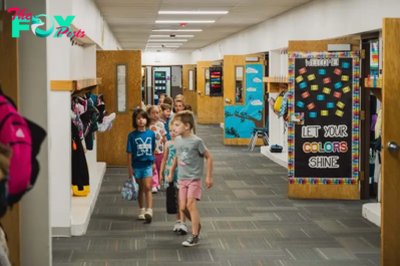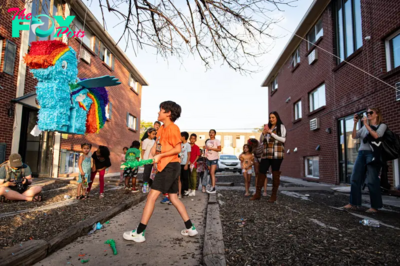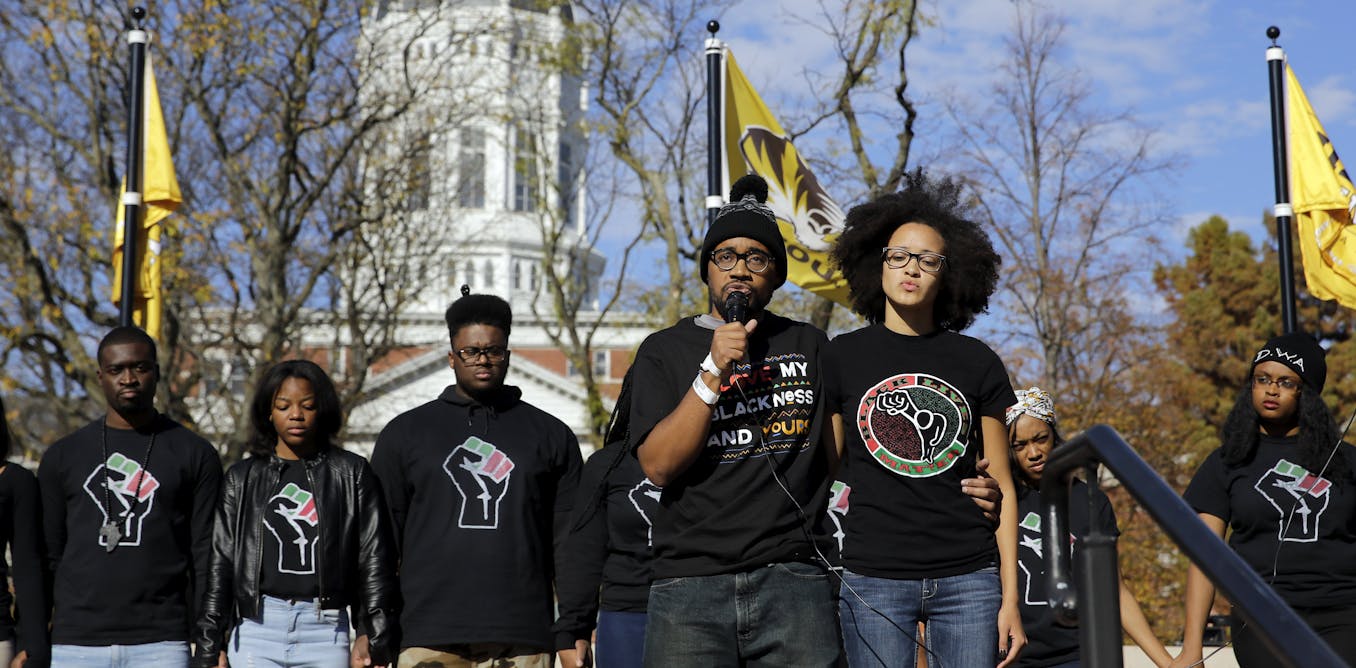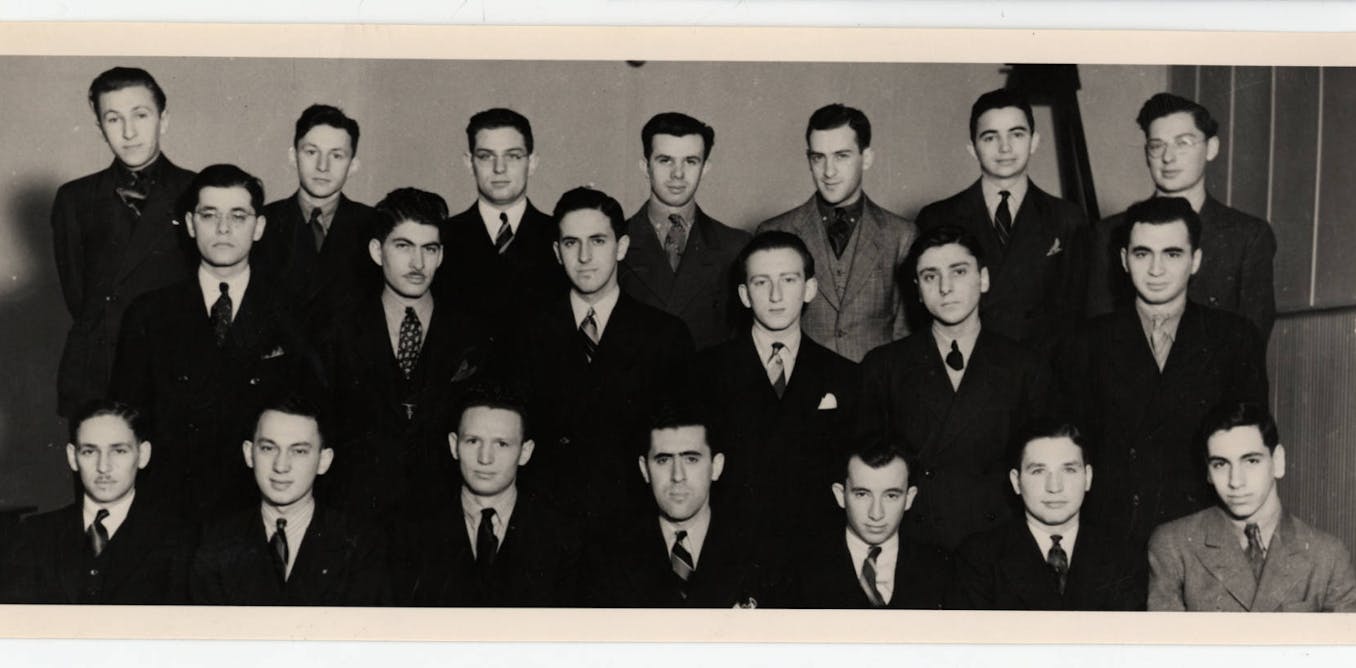Education
Students go to hell and back in this course that looks at depictions of the damned throughout the ages

Uncommon Courses is an occasional series from The Conversation U.S. highlighting unconventional approaches to teaching.
Title of course:
“Road to Hell: The Apocalypse in Classical and Contemporary Forms”
What prompted the idea for the course?
When Meghan R. Henning, a scholar of early Christianity, completed her 2014 book on how the concept of hell evolved in the early Christian church, she wanted to develop a course that examined how these visions of hell found their way into contemporary media. Soon after, she met Joseph Valenzano III, a communication scholar who studies religious rhetoric in film and television. The course “Road to Hell” was born in 2015 as a collaboration between the two. I’ve been teaching the course since 2020, which aligns with my research focus on intersections of film and television production with geography and American culture.
What does the course explore?
The course begins with the ancient Egyptian Book of the Dead. It ends with the evangelical “hell houses” of the 21st-century United States that attempt to scare visitors into salvation with horrific visions of secular sinners being dragged into hell. It’s a chronology that spans about 3,500 years.
Along the way, the course explores other versions of the afterlife, such as the ancient Jewish concept of Sheol, Greek and Roman visions of Hades, Norse mythology’s Ragnarok, and the evolution of Christian concepts of hell and the end-times from the Gospels and the Book of Revelation through Dante’s Inferno, and how all these visions align with scholarly definitions of an apocalypse. In each of these lessons, students compare these traditions against contemporary film and television that evoke the iconography and thematic content of those apocalypses.
Why is this course relevant now?
Even outside of the Christian tradition, hell is a concept that is never far from people’s minds, and since at least the 1970s, the end-times have been a part of mainstream American discourse. Most people have an idea of what hell or the end-times look like, but few understand where these ideas come from, or how much those ideas are mediated by popular culture.
What’s a critical lesson from the course?
The images we see in books, TV shows and movies are a part of a rhetorical tradition that goes back thousands of years. Understanding where those images come from and how they are used in contemporary media helps people understand the relationship between ancient times and the present day.
What materials does the course feature?
“Hell Hath No Fury: Gender, Disability, and the Invention of Damned Bodies in Early Christian Literature,” by Meghan R. Henning.
“Enraptured by Rapture: Production Context, Biblical Interpretation, and Evangelical Eschatology in The Rapture, Left Behind, and This is the End,” an October 2024 article in the Journal of Religion & Film by Robert G. Joseph, Laura M. Tringali and Meghan R. Henning.
“Giving the Devil His Due: Satan and Cinema,” edited by Jeffrey Andrew Weinstock and Regina M. Hansen.
What will the course prepare students to do?
By the semester’s end, students complete their own analyses of their chosen ancient apocalypse and contemporary media with a final presentation. Like all good humanities courses, Road to Hell encourages its students to reach into the past in order to better understand how reality is constructed in the present.
-

 Education5h ago
Education5h agoHow might Trump’s vow to abolish the U.S. Department of Education impact Colorado schools?
-

 Education4d ago
Education4d agoParents, lawmakers make last-ditch plea to school board to halt Denver closures
-

 Education1w ago
Education1w agoColorado schools commit to protecting students ahead of potential mass deportation
-

 Education1w ago
Education1w agoSocioeconomic status explains most of the racial and ethnic achievement gaps in elementary school
-

 Education1w ago
Education1w agoMothers, metaphors and dyslexia: What language reveals about the challenges of a child’s learning disability
-

 Education1w ago
Education1w agoBrain-training games remain unproven, but research shows what sorts of activities do benefit cognitive functioning
-

 Education2w ago
Education2w agoRacism is such a touchy topic that many US educators avoid it – we are college professors who tackled that challenge head on
-

 Education2w ago
Education2w agoHere’s what happens when a school is located near a cannabis dispensary





















